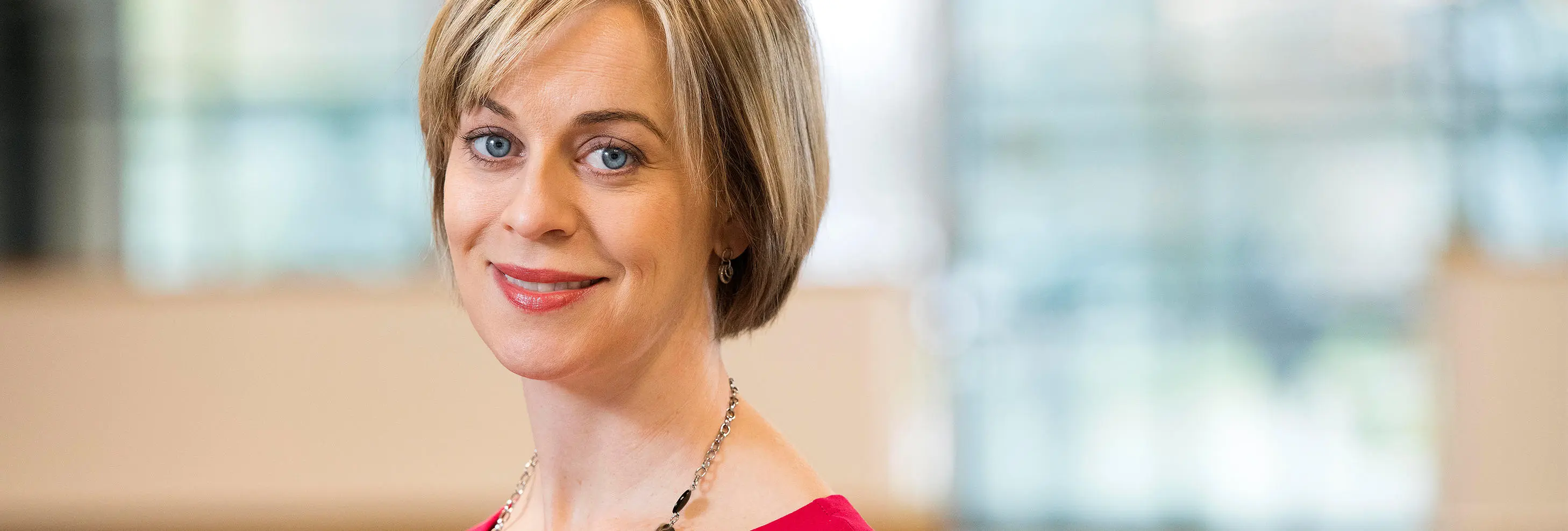UCLan’s Dr Rachel Stockley is sharing her expertise with a company developing ‘wearable therapy’ to help stroke rehabilitation
A University of Central Lancashire (UCLan) stroke researcher is playing a key role in helping develop an award-winning smart textile.
Dr Rachel Stockley is sharing her expertise with KnitRegen’s creator Laura Salisbury to assist the development of ‘wearable therapy’, in the form of smart nano structure yarns, to help stroke rehabilitation.
The start-up company, which is using a novel ‘bead’ that can be stitched into clothing and delivers timed impulses to stimulate muscles, has now won the Mayor of London's Entrepreneur Programme Health Award.
Dr Stockley, UCLan Physiotherapist and Senior Research Fellow, said: “I’m absolutely delighted KnitRegen has won such a fantastic award as the competition was very strong. It’s great recognition for the fantastic work being undertaken as improving recovery of the arm, wrist and hand after stroke is a key priority for people after stroke however, providing enough rehabilitation is often difficult.
“Finding ways to increase intensity of rehabilitation is one of my key areas of interest and research. We know that recovery happens 24 hours a day, not just when someone is working directly with a therapist, so by producing a therapeutic garment that can be worn for long periods, Laura’s work could make a real difference to the recovery of people after stroke.”
"Finding ways to increase intensity of rehabilitation is one of my key areas of interest and research. We know that recovery happens 24 hours a day, not just when someone is working directly with a therapist."
— Dr Rachel Stockley, UCLan Physiotherapist and Senior Research Fellow
According to the latest figures for the UK, one stroke occurs every five minutes. Stroke incidence has more than doubled in low and middle-income countries in the last 30 years, indicating an urgent and growing need for prevention and recovery solutions.
Dr Stockley acts as the lead clinical advisor to KnitRegen. She said: “I provide information and context about the clinical problems experienced by people after stroke, give insights about the current rehabilitation practices, common aims of therapy and how technologies might be embedded into rehabilitation.
“This ensures that any technology addresses the key needs of both patients and therapists and forms a good fit with the aims of therapy and routine clinical practice.”
Last year she became one of the first physiotherapists in the country to receive the UK Research and Innovation Future Leaders Fellowship. Her research is exploring how people can design, implement and evaluate digital technologies in healthcare.
"Rachel has shared her expertise from a physiotherapist’s and stroke research fellow’s perspective to help inspire developments of our textile components. It has been invaluable to learn from the extensive knowledge Rachel has."
— Laura Salisbury, KnitRegen’s creator
She said: “I’ve always been interested in working with people outside of health to find innovative ways to improve healthcare, in this case to increase the amount of rehabilitation for people with neurological problems like stroke.
“After a brief discussion with Laura, we realised that our work interests, although in different fields, were quite closely aligned and were keen to work together. As well as providing her with clinical advice, I’ve learnt a lot; her work is strongly embedded in user centred design and so I was also able to learn about design principles and approaches which I plan to use in my own research.”
Laura, who founded the wearable medtech company while completing a PhD at the Royal College of Art, added: “Rachel has been an invaluable source of support throughout the last few years that I have worked with her.
“We met at a lecture in London and quickly saw that our visions aligned. Since then Rachel has shared her expertise from a physiotherapist’s and stroke research fellow’s perspective to help inspire developments of our textile components. It has been invaluable to learn from the extensive knowledge Rachel has.
“Rachel’s work presents an inspiring future direction for innovation to improve the lives of those with stroke. I’m thankful for meeting her!"

